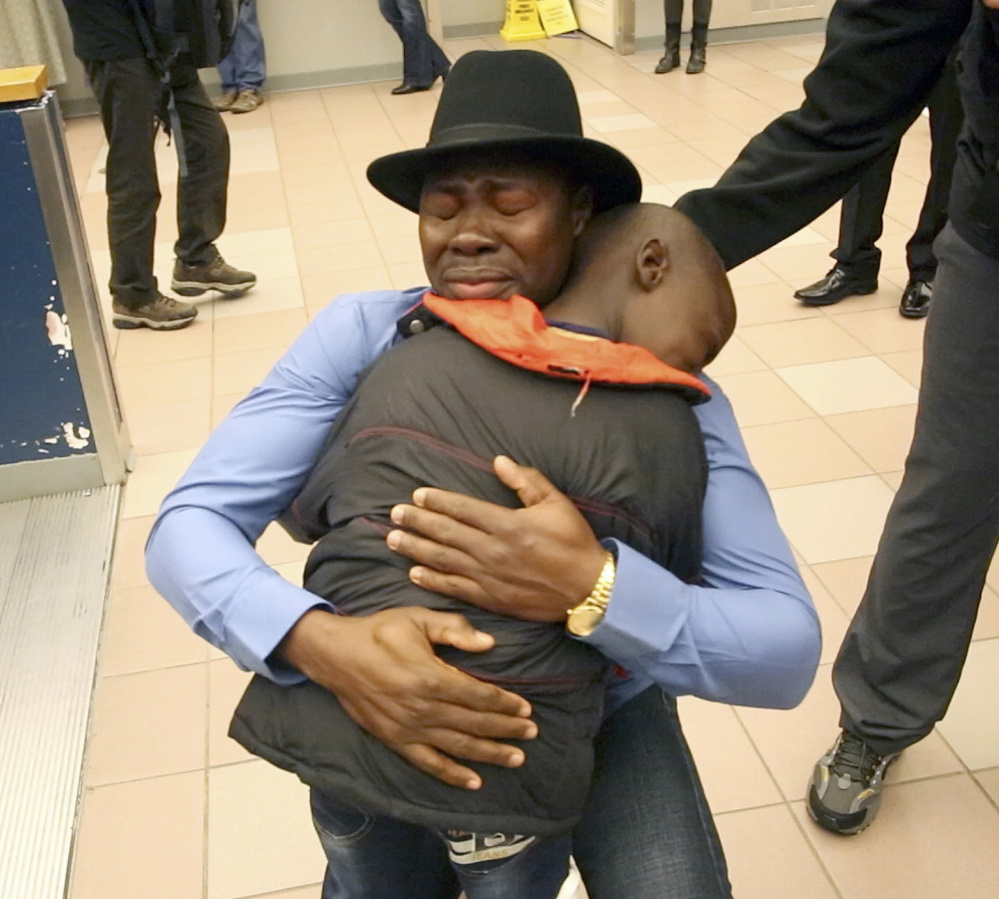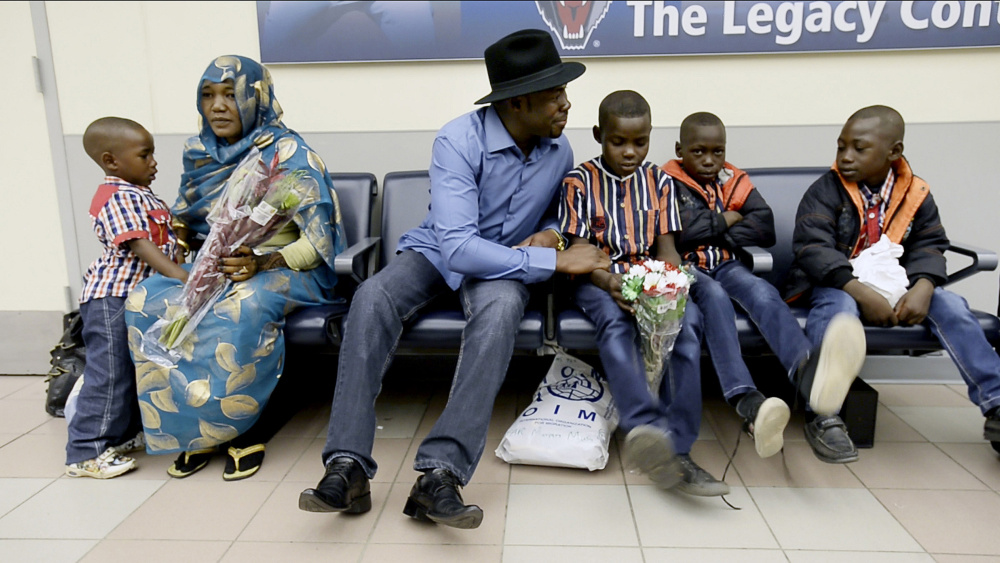Haroun Adam is sitting in a waiting area at the Portland International Jetport, counting the minutes until 11:06 p.m., when Delta Flight 5127 is scheduled to arrive from New York.
A half-dozen people – most of them fellow Sudanese – keep him company. Everybody is smiling.
“I want to be here,” says Adam’s friend Ayman Musa, “because I know how it feels when your family comes.”
Adam, 35, has waited almost five years for this moment. That’s how long he’s been apart from his wife and their four young sons. He has never met their last- born, 4-year-old Maaz.
“It was so difficult,” he says. “But many, many people, they helped me. I really appreciate. I never forget.”
Before coming to the United States, Adam was a farmer in West Darfur, Sudan. In 2003 his village was destroyed in the civil war. He says armed militants known as Janjaweed rode in on horses and camels and began shooting. Two of his brothers, an uncle and his father-in-law were killed.
He and his wife hid from the attackers and now are among the more than 2 million Sudanese who have been displaced as a result of the ongoing turmoil in the country. The couple ended up in a refugee camp in the town of Mornay, where all four of their children were born. Disease and violence were commonplace.
“There was no protection,” he says.
Adam was badly beaten when he tried to stop a group of men who assaulted his wife and younger sister. The attackers broke his right leg, which already was severely weakened by skeletal tuberculosis, as is his left arm.
His father urged him to leave Sudan in 2010 because he had become a target of government troops after he spoke with humanitarian aid workers about conditions in the camp. It was a heart-wrenching decision. If he left, he’d have to leave alone. Taking his family with him was beyond his means and posed too much danger to the children.
He fled to Khartoum, Sudan’s capital, and then to Jordan, where he was granted refugee status. In 2013, Adam was resettled in Maine and began the arduous task of getting permission for his family to join him.
“It’s a long process,” says Leslie Merrill, a constituent services representative in U.S. Rep. Chellie Pingree’s office, which helped Adam file the necessary paperwork and kept a close eye on the case.
“Our role is to help people navigate the system in case something gets stuck,” Merrill says.
While he waited, Adam moved into a tiny apartment in downtown Portland and began studying English with the help of a volunteer tutor at the Root Cellar Ministry. Adam speaks Arabic and his goal is to become an interpreter – work he can do despite his disabilities.
There were days when he lost hope that he’d see his family again.
“Many times I cried,” he says. “(But) when I got sad or hopeless I see my wife in my heart.”
He kept his eye on the ultimate prize: a better life for their children.
That’s what motivates the majority of refugees who come to the United States, says Tarlan Ahmadov, the director of Catholic Charities Refugee and Immigration Services.
“(Here) they have a bright future for their children,” he says. “That’s the biggest drive for all people.”
But it’s rarely an easy transition, especially when a family has been apart.
“When the families are separated for years, their life in the beginning isn’t easy,” Ahmadov says. “It may take a long time for them to feel like a family again.”
But on this night in mid-December, Haroun Adam isn’t thinking about the challenges ahead. His focus is on the 9-year-old boy who is making his way down the escalator at the jetport.
Adam moves through the crowd, reaches his son Mohamed and kneels down.
Mohamed hesitates for a split second before his eyes widen in recognition. He lets out one short sob and throws himself into his father’s arms. Both are crying.
Moments later, Adam is holding his wife, Mariam, surrounded by their four boys: Maaz, Mohamed, his twin brother, Motasim, and 6-year-old Mortada.
Her head is on his shoulder.
“Don’t worry, my wife,” he says gently in Arabic. “Don’t cry. This is our life now. You are safe.”
Send questions/comments to the editors.




Success. Please wait for the page to reload. If the page does not reload within 5 seconds, please refresh the page.
Enter your email and password to access comments.
Hi, to comment on stories you must . This profile is in addition to your subscription and website login.
Already have a commenting profile? .
Invalid username/password.
Please check your email to confirm and complete your registration.
Only subscribers are eligible to post comments. Please subscribe or login first for digital access. Here’s why.
Use the form below to reset your password. When you've submitted your account email, we will send an email with a reset code.